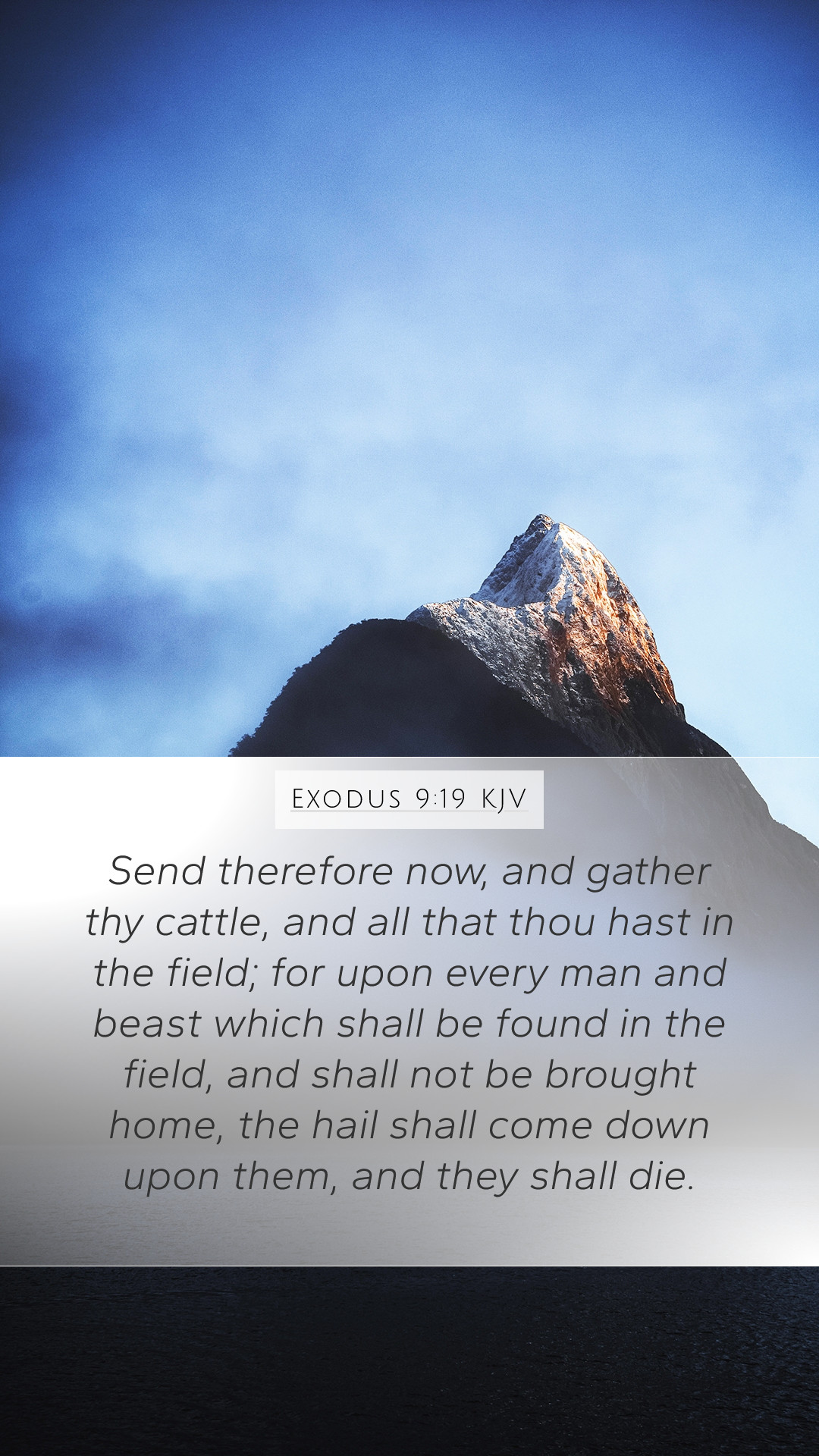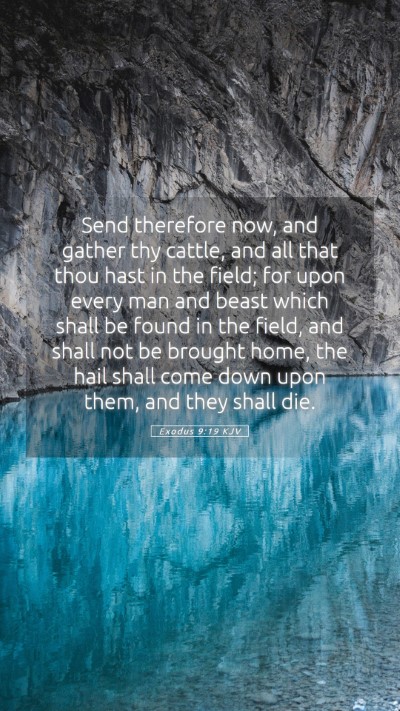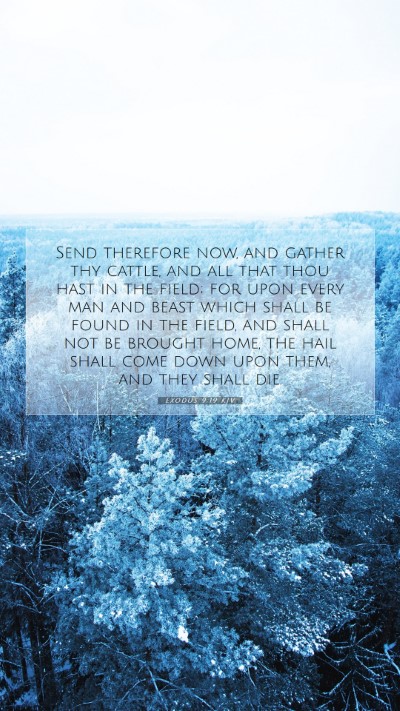Exodus 9:19 - Commentary and Interpretation
“Therefore send now and gather your livestock and all that you have in the field, for the hail will come down on every man and every animal which is found in the field and is not brought home; and they shall die.” (Exodus 9:19, NKJV)
This verse is part of the narrative regarding the plagues that God sent upon Egypt to persuade Pharaoh to release the Israelites from slavery. In Exodus 9:19, God warns of an impending hailstorm that would destroy any livestock left unprotected in the fields. The significance of this verse offers several layers of meaning and reflection within the broader context of Scripture.
Understanding Scripture: Interpretation and Significance
The verse can be analyzed through various lenses as suggested by respected biblical scholars such as Matthew Henry, Albert Barnes, and Adam Clarke.
Insights from Commentaries
-
Matthew Henry:
Henry explains that this warning from God highlights His sovereignty and ability to control nature. The hail represents not only physical destruction but also a spiritual appeal to Pharaoh to recognize God's power and authority. The urgency of the command to gather livestock reflects God’s mercy, giving the Egyptians a chance to save what they can.
-
Albert Barnes:
Barnes emphasizes the importance of taking heed to divine warnings. He notes that the Egyptians had ample opportunity to avoid disaster if they had chosen to listen. This remedial aspect of God’s warning showcases His inclination for repentance and mercy over judgment.
-
Adam Clarke:
Clarke provides a detailed historical context regarding the significance of livestock in Egyptian society, where animals were central to agriculture and livelihood. The impending hailstorm serves as a crucial turning point that affects both the economy and the faith of the people. Clarke underlines how choosing to believe in God’s word and taking action demonstrates one’s faith, contrasting those who ignored the warning.
Application of Exodus 9:19
The application of this verse resonates in contemporary life, prompting readers to consider how they respond to divine guidance. Just as the Egyptians could have acted to save their livestock, believers today are encouraged to heed spiritual warnings in their lives.
Lessons for Bible Study Groups
- Recognize the importance of heeding God's warnings in our lives.
- Reflect on how societal norms, like those surrounding the Egyptians' dependence on livestock, can overshadow spiritual truths.
- Encourage discussions about God's mercy shown through warnings and the chance for redemption.
Related Bible Cross References
- Exodus 9:3-4: God’s plague on livestock, illustrating His power and the consequences of Pharaoh's stubbornness.
- Exodus 10:7: Pharaoh’s servants urging him to heed the warnings of Moses, reflecting human resistance to divine command.
- Job 38:22-23: God's mighty control over the weather, reinforcing His authority over creation.
Conclusion
Exodus 9:19 stands as a salient reminder of God’s authority and the serious nature of His warnings. The engagement with this verse through historical context, personal application, and communal learning can deepen one’s Bible verse understanding. As believers, reflecting on this passage encourages us to seek Bible study insights that can be applied thoughtfully in our daily decisions.
As you explore the meaning of Bible verses such as Exodus 9:19, may you be enlightened by the study resources available, enhancing your understanding of Scripture and its relevance in your life.


